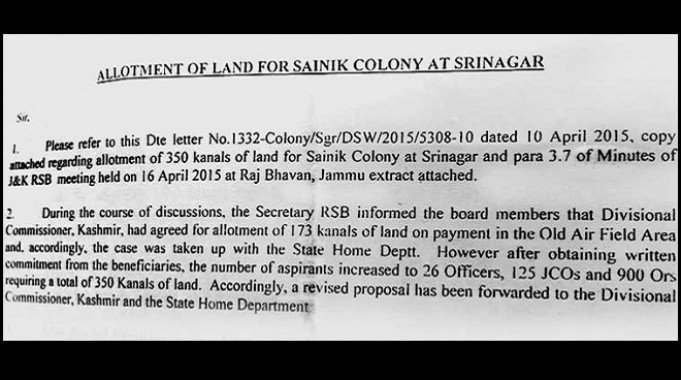Mufti Govt: turning on the press
The document published by the Indian Express on May 6, 2016
As in other conflict ridden states, practicing journalism in Jammu and Kashmir is sometimes a challenge. Every few weeks or so the citizenry here are roiled by a fresh provocation and reporters trying to do their job come into the line of attack, verbal or otherwise.
In the second media-related issue that has surfaced in the five weeks that the government of Mehbooba Mufti has been in the saddle, a minister in her cabinet sought to deflect attention from embarrassment created for the government by newspaper reports, by blaming the messenger. Not just for getting facts wrong but for “making deliberate, motivated efforts to disturb the peace of the state at a time when tourism and business have started picking up.”
That is an amazing statement coming as it does from an influential minister in the Jammu and Kashmir cabinet, Naeem Akhtar who is education minister and the government spokesman. Not only did it attribute conspiratorial, anti-state motives to the media for doing investigations that it is their job to do, but the language used is loaded given the context of this state’s laws.The notorious Public Safety Act of 1978 prescribes detention of seven years going up to life, or death, for those found disturbing public order! Often, the dossiers against separatists for putting them behind bars declare them a threat to peace. Did Mr Akhtar overstate the case? Why accuse journalists of wanting to deliberately disturb peace and scuttle tourism which is the economic lifeline for Kashmir?
The facts of this story are as follows. On May 6 the Indian Express published a story based on letters written by the home department (headed by the chief minister) to the deputy commissioners of Budgam and Srinagar on the issue of allotting land for sainik colonies in the state. The story said that moving on a proposal fast-tracked when the state was under Governor’s rule earlier this year, the home department had asked officials to identify land in Srinagar and Budgam for Sainik colonies to house troops and their families.
The first and second paras of the story were contradictory because the first said what the reporter had found and the second gave the state government’s denial of what the correspondence was showing. But the Opposition ranging from mainstream parties to separatist groups lost no time in crying foul. The Express reported that former CM Omar Abdullah had warned that the government would face “public anger” if it wanted to settle serving or retired servicemen who do not belong to the state.
Meanwhile the chief minister denied the proposal when asked whether the PDP-BJP government would go ahead with the proposal to set up sainik colonies in Kashmir. She did not respond when asked about the communication sent to deputy commissioners to identify land.
The story was not new, roughly the same facts had been reported in August 2015 by the Kashmir Reader, inviting a denial from the PDP-BJP government. The same publication immediately followed up the Express story this month with two more, recalling the earlier expose and talking again to the DC in Budgam to corroborate what the Express had reported. The Reader said that the state government was saying the land had been asked for but that did not mean it was being given. Of course that begged the question – why was the home department headed by the chief minister following up with the DCs if it did not intend to set up these sainik colonies?
And why was it leveling serious charges against the media to cover up its own internal contradictions?
Last month, less than three weeks after it was sworn in, when trouble erupted in Handwara and led to tragic killings, two offices in the district issued different orders seeking to control admins of WhatsApp groups, and prescribing different methods. Kashmir became the first state in the country to attempt to regulate an OTT (over the top) service such as WhatsApp even as the Telecom Regulatory Authority of India (TRAI), whose policy turf this is, has not announced any guidelines on this matter as yet.
Taken together Mr Akhtar’s accusations and the WhatsApp order already suggest that when under fire Ms Mufti’s government will turn on mainstream and social media. And that is not good news for either journalists or citizenry.







